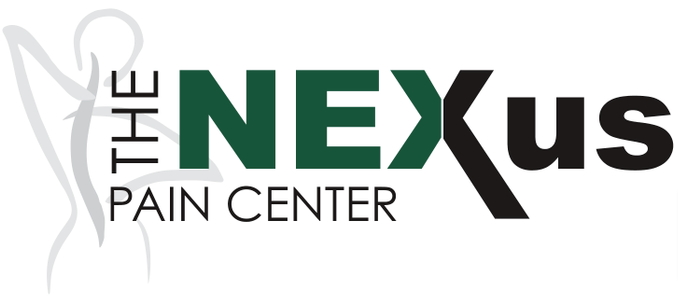Herniated discs are a common condition that affects many individuals, causing pain and discomfort in the back or neck. It is essential to understand the preventive and management strategies to alleviate the symptoms and improve overall quality of life.
When a disc herniates, the inner core protrudes through the outer layer, causing pain and discomfort. Recognizing symptoms early can lead to appropriate treatment. Preventive measures such as maintaining a healthy weight, good posture, and regular exercise can reduce the risk. Various factors like age-related degeneration or improper lifting techniques can contribute to herniated discs. By addressing these risk factors, individuals can maintain proper spine health.
Recognizing Early Signs of Herniated Discs
Detecting the early symptoms of a herniated disc is crucial in preventing further complications and ensuring timely treatment. When a disc in the spine becomes herniated, it can cause a variety of symptoms that vary depending on the location of the affected disc. Some typical initial signs may include intense or piercing discomfort in the back or neck, sensations of numbness or pins and needles in the arms or legs, muscle fatigue, and challenges with balance and movement.
Ignoring the early symptoms of a herniated disc can lead to more severe issues such as nerve damage, loss of mobility, or even paralysis in extreme cases. By seeking medical attention at the first sign of a problem, individuals can receive the appropriate treatment and prevent the condition from worsening. Understanding what a herniated disc feels like can help individuals identify the symptoms early on. The sensation is often described as a sharp, shooting pain that radiates from the spine to other parts of the body. This pain may worsen with certain movements or activities that put pressure on the affected disc.
Preventive Measures for Herniated Discs
To prevent herniated discs, it is essential to make certain lifestyle adjustments. Incorporating exercises that target the back and core muscles can significantly reduce the risk of developing a herniated disc. Strengthening these muscles helps support the spine and improve overall stability. For example, yoga style exercises are extremely effective in building strength in the core and back. Maintaining proper posture is crucial in preventing herniated discs. This includes sitting and standing with the spine aligned, avoiding slouching or hunching over, using ergonomic chairs and desks, as well taking frequent breaks to stretch and move around, which can prevent stiffness and tension in the back.
Daily Management Strategies for Those With Herniated Discs
In order to alleviate discomfort in the lower back caused by a herniated disc, it is essential to make certain adjustments to daily activities. One practical tip is to avoid activities that put strain on the back, such as heavy lifting or prolonged sitting. Instead, opt for gentle exercises like walking or swimming to strengthen the muscles that support the spine.
In addition to modifying activities, there are various pain relief options available. Over-the-counter medications like ibuprofen or acetaminophen can help reduce inflammation and alleviate pain. Applying ice packs or heating pads to the affected area can help reduce inflammation and provide relief. Gentle stretching exercises or yoga poses that target the back and core muscles can also help improve flexibility and reduce pain. Physical therapy may also aid in strengthening the muscles surrounding the spine, improving flexibility, and reduce pressure on the affected disc.
When to Seek Professional Help
If symptoms persist or worsen, it is important to seek medical advice for further evaluation and treatment options. These symptoms may include persistent or severe back pain that radiates down one or both legs, numbness or weakness in the legs or feet, difficulty walking or standing, and changes in bowel or bladder function. Additionally, if the pain does not improve with rest or over-the-counter medication, it is crucial to consult with a healthcare provider.
The healing time for a herniated disc can vary depending on the severity of the injury and individual factors. In general, most people experience relief from symptoms within a few weeks to a few months with conservative treatments such as rest, physical therapy and medication. However, some cases may require more intensive interventions to alleviate pain and prevent further complications.
Innovative Treatments and Therapies
Non-invasive treatments for managing herniated discs have advanced significantly in recent years, offering patients a range of options to alleviate pain and promote healing without the need for surgery. At The Nexus Pain Center, individuals suffering from herniated discs can benefit from a variety of therapies tailored to their specific needs. Our team of medical professionals offer a range of nonsurgical and non-addictive treatments for herniated discs. These therapies include:
Epidural injections: This procedure involves the direct administration of anesthetic and steroid medications into the spine to alleviate pain and inflammation associated with herniated discs.
Facet blocks: By injecting a blend of local anesthetic and steroid into the facet joints of the spine, patients can experience targeted pain relief and improved mobility.
Radiofrequency ablation: This cutting-edge technique utilizes radio waves to generate heat, which selectively targets specific nerve tissues responsible for transmitting pain signals from the spine to the brain. By disrupting this transmission, patients can experience significant pain reduction.
Nerve root blocks: Similar to facet joint injections, nerve root blocks are strategically placed alongside the spine to target and relieve pain stemming from herniated discs.
For a comprehensive and personalized approach that combines these advanced treatments to effectively manage your pain, don’t hesitate to reach out to our specialists at The Nexus Pain Center and schedule an appointment today. With our expertise and dedication to patient care, you can take proactive steps towards a pain-free life.
Our multiple clinics throughout Georgia, conveniently situated in Columbus, LaGrange, Fayetteville, Newnan, and McDonough, provide state-of-the-art solutions. The services at Nexus Pain Center offer a pathway to a healthier, pain-free life. Beyond herniated disc treatments, we also offer neuropathy treatment, treatment for fibromyalgia, therapy for spinal cord stimulation, and more.
The Nexus Pain Center provides complimentary consultations that will help patients gain valuable insights and recommendations tailored to address specific concerns related to herniated discs. We offer a specialized program that focuses on preventive care and effective pain management strategies for herniated discs. Don’t hesitate to take the first step towards a healthier future and improved quality of life by contacting The Nexus Pain Center today.

